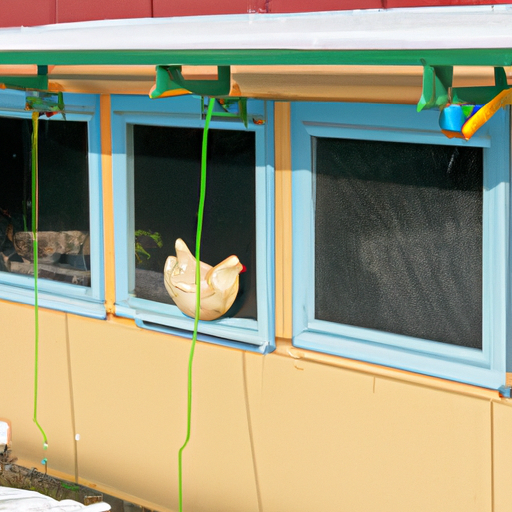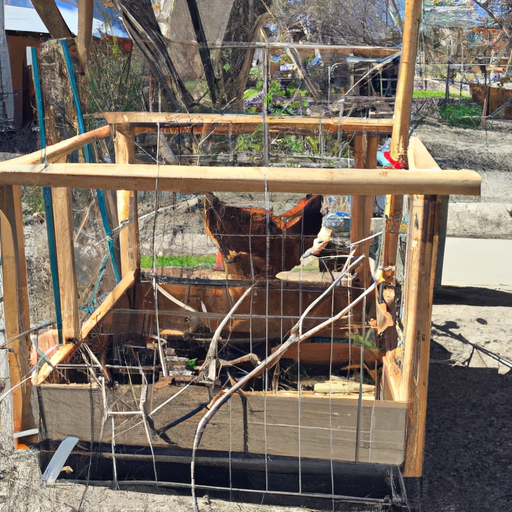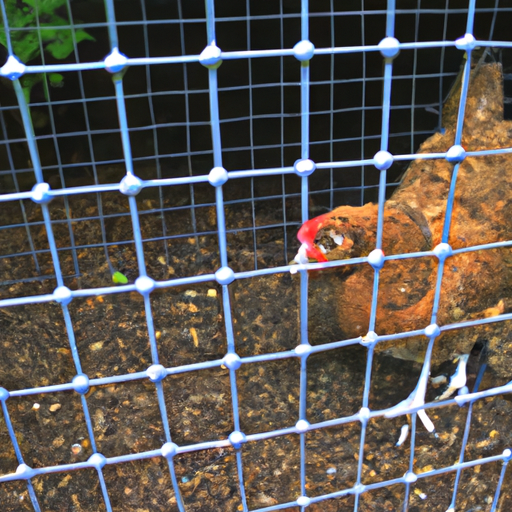Living in an urban environment has its own unique challenges, but one question that often comes to mind is whether certain chicken breeds are better suited for city living. This article explores the possibility of specific chicken breeds being more adaptive to urban environments, taking into account factors such as size, noise levels, and egg production. Whether you’re a seasoned urban farmer or simply curious about the feasibility of keeping chickens in the city, read on to discover which chicken breeds may be the perfect fit for your urban backyard.
Factors to Consider for Urban Chicken Breeds
Raising chickens in urban environments has become increasingly popular, but it’s important to choose the right breed that will thrive in limited space and comply with local regulations. Here are several factors to consider when selecting an urban chicken breed:
Space Requirements
One of the most crucial factors to consider when choosing an urban chicken breed is their space requirements. Since urban dwellers typically have limited yard space, it’s essential to select breeds that are well-suited for small coop setups. Look for breeds that are classified as small or medium-sized, as they generally require less space to thrive.
Noise Levels
Living in close proximity to neighbors means that noise levels should be taken into account. Some chicken breeds are renowned for being noisy, especially when they lay eggs or when a rooster is present. If noise is a concern, it’s advisable to choose breeds that are known for being quieter.
Temperament
Temperament plays a crucial role when keeping chickens in an urban setting. Docile and friendly breeds are often the best choice, as they are more likely to get along with humans and other animals. On the other hand, nervous and flighty breeds may cause more issues in urban environments, especially if they are easily startled or prone to escaping their enclosures.
Foraging Ability
For urban chicken owners, the ability to forage is an important trait to consider. Chickens that are good foragers can find natural sources of food within their limited space, reducing their dependence on commercial feed. In addition, they can also help control pests in the area. Look for breeds that are known for their foraging skills to make the most out of your urban chicken keeping experience.
Egg Laying
If you’re raising chickens for their eggs, it’s crucial to choose a breed that is a consistent and productive egg layer. Some breeds are known for their exceptional egg production, while others may lay eggs less frequently. Consider your egg needs and select a breed that aligns with your desired egg production.
Health and Hardiness
Keeping chickens healthy in an urban environment can pose its challenges, so it’s vital to choose breeds that are known for their health and hardiness. Some chicken breeds are more susceptible to diseases and stress, while others are renowned for their ability to withstand various environmental conditions. Selecting a breed with good health and hardiness traits will increase the chances of successful urban chicken keeping.
Climatic Adaptability
The climate in which you live can also impact the choice of urban chicken breeds. Different breeds have varying levels of tolerance to extreme temperatures, so it’s important to consider your local climate when selecting your flock. Breeds that are cold hardy are suitable for northern climates, while heat-resistant breeds are better suited for hotter regions.
Legal Restrictions
Before bringing chickens into your urban setting, it’s essential to research and understand the legal restrictions in your area. Local regulations may dictate the number of chickens allowed, the presence of roosters, noise limits, and other factors. Make sure to comply with these regulations to avoid any legal trouble and maintain harmonious relationships with your neighbors.
Predator Resistance
Sadly, predators can be a concern when raising chickens, even in urban environments. It’s crucial to consider the predator resistance of different chicken breeds before making a decision. Some breeds are more alert and have better natural defenses against predators, while others may be more vulnerable. Assess the potential predators in your area and select a breed that is known for its predator resistance.
Appearance and Personality
While not the primary consideration, the appearance and personality of your chosen chicken breed can also play a role in your decision-making process. Urban chicken keeping can be a source of joy and entertainment, so choosing a breed that catches your eye and has an appealing personality can enhance your overall experience.
Urban Chicken Breeds that Excel in Limited Spaces
Bantam Breeds
Bantam breeds are a popular choice for urban chicken keepers due to their small size. These miniature versions of standard chicken breeds, such as the bantam version of the Cochin or Wyandotte, require less space compared to their larger counterparts. Bantams are known for their friendly demeanor and are often chosen for their ornamental appearance as well.
Silkie
Silkies are a small breed that thrives in urban settings. They have a unique appearance, with fluffy feathers that resemble fur and black skin. Silkies are incredibly docile and friendly, making them a family favorite. Although their egg production is moderate, they are known for their broodiness, making them excellent mothers when breeding chickens.
Sebright
The Sebright breed, with its intricate and stunning plumage, is an excellent choice for urban chicken keeping. They are small and require less space compared to larger breeds. Sebrights are known for their friendly and docile nature, making them a great addition to any urban flock.
Belgian d’Uccle
Belgian d’Uccles are known for their small size and beautiful feather patterns. These birds are friendly and easy to handle, making them suitable for urban environments. They are also known for their broodiness and make excellent mothers. Despite their small size, Belgian d’Uccles are good egg layers, making them ideal for those seeking a mix of aesthetic appeal and productivity.
Japanese
Japanese chickens are a true bantam breed, which means they have no large fowl counterpart. These compact birds are known for their striking appearance, with a long, slim body and impressive tail feathers. Japanese bantams are easy to handle and adapt well to urban environments. They are also good egg layers, making them a practical choice for urban chicken keepers.
Polish
Polish chickens, with their unique crests of feathers, are popular among urban chicken enthusiasts. Despite their fancy headgear, Polish chickens are known for being docile and friendly. They are relatively small in size and adapt well to limited spaces. Polish hens are also known for their consistent egg production, making them a practical choice for urban dwellers.
Quiet and Noisy Chicken Breeds for Urban Settings
Quiet Breeds
For those seeking a peaceful and serene urban chicken keeping experience, choosing quiet breeds is essential. Some breeds naturally have a quieter disposition and produce minimal noise. Breeds such as Australorp, Orpington, and Sussex are known for being relatively quiet and are less likely to disturb your neighbors.
Silent Layers
If you want to prioritize egg production while keeping noise levels low, consider selecting silent layer breeds. These breeds lay eggs without creating much commotion or vocalization. Breeds like Leghorns and Rhode Island Reds are known for their efficient egg-laying abilities, all while maintaining a quieter environment.
Noisy Breeds
On the other end of the spectrum, some breeds are inherently more vocal than others. If you enjoy the melodious sounds of your flock and don’t have strict noise restrictions, noisy breeds can bring a lively atmosphere to your urban setting. Breeds such as Hamburgs and Houdans are known for their chattiness, giving your urban chicken keeping experience a vibrant touch.
Vocal Egg-layers
If you want a blend of productivity and cheerful noise, selecting vocal egg-laying breeds allows you to enjoy the best of both worlds. Breeds like Barred Rocks and Australorps are known for their egg-laying capabilities while also having a moderate level of vocalization. They can be a suitable choice for urban chicken keepers who are not restricted by excessive noise regulations.
Urban-Friendly Chicken Breeds with Good Temperament
Friendly and Docile Breeds
Selecting chicken breeds with a friendly and docile nature is crucial for an urban setting where interactions with humans and other animals are common. Breeds like Brahmas, Cochins, and Wyandottes are known for their gentle temperament and adapt well to being handled. Their calm nature makes them ideal for families with children and ensures a peaceful and enjoyable experience.
Child-friendly Breeds
If you have children or intend to include them in the chicken-keeping experience, choosing child-friendly breeds is essential. These breeds are typically gentle and patient, making them more suitable for interaction with young children. Breeds such as Orpingtons, Silkies, and Plymouth Rocks are known for their tolerant and easygoing nature, ensuring a positive experience for both kids and chickens.
Nervous and Flighty Breeds
While friendly and docile breeds are generally the preferred choice for urban environments, some chicken keepers may prefer more active and energetic breeds. Nervous and flighty breeds, such as Leghorns or Anconas, often exhibit high energy levels and tend to be more alert. While they may not be as calm or easily handled as other breeds, they provide a livelier and more interactive experience for their owners.
Chicken Breeds with Superior Foraging Skills
Foraging Abilities
Chickens with exceptional foraging skills are an asset in urban environments, as they can find natural sources of food within their limited space. Breeds like Australorps and Sussex excel in foraging and are adept at finding insects, seeds, and greens. By letting these breeds roam within a controlled area, you can reduce their dependence on commercial feed while providing them with a more natural and varied diet.
Natural Pest Control
In addition to supplementing their diet, chickens with excellent foraging abilities can be effective at controlling pests in your urban environment. Breeds such as Easter Eggers and Rhode Island Reds have a keen eye for hunting down insects and can help keep tick, flea, and mosquito populations in check. Their natural pest control abilities can contribute to a healthier and more enjoyable living environment for both humans and chickens.
Most Productive Egg-Laying Chicken Breeds for Urban Dwellers
High Egg Production
For urban chicken keepers seeking a constant supply of fresh eggs, choosing breeds known for their high egg production is imperative. Breeds such as Leghorns and Golden Comets are renowned for their exceptional egg-laying abilities and consistently provide a substantial number of eggs throughout the year. These productive breeds are suitable for those who prioritize quantity over other considerations.
Consistent Egg Layers
Consistency in egg production is essential for urban dwellers who desire a steady supply of eggs. Breeds like Australorps, Plymouth Rocks, and Rhode Island Reds are known for their consistent laying patterns, ensuring a reliable source of fresh eggs. These breeds are suitable for those who value a regular supply of eggs and appreciate a balanced approach to egg production.
Dual-Purpose Breeds
If you desire both a source of fresh eggs and the option of meat, dual-purpose breeds may be the perfect fit for your urban environment. Breeds such as Sussex, Orpingtons, and Rhode Island Reds offer a combination of good egg production and decent meat quality. These versatile breeds provide urban chicken keepers with the opportunity to both enjoy fresh eggs and raise chickens for meat if desired.
Healthy and Resilient Chicken Breeds for Urban Environments
Disease Resistance
Urban environments can expose chickens to various stressors and potential sources of disease. Selecting breeds known for their disease resistance can help mitigate health issues. Breeds like Rhode Island Reds and Australorps have a reputation for being hardy and resilient, making them less susceptible to common poultry ailments. These breeds are more likely to thrive and remain healthy despite urban stressors.
Tolerance to Urban Stressors
Urban environments often bring unique stressors that can negatively impact chicken health. Noise, pollution, and increased human activity can all cause stress to your flock. Breeds such as Cochins and Wyandottes are known for their docile nature and adaptability, making them more tolerant to urban stressors. This resilience allows them to maintain their health and vigor in the face of urban challenges.
Cold Hardy Breeds
For urban dwellers in colder regions, selecting cold hardy breeds is essential to ensure chickens remain healthy during winter months. Breeds like Brahmas and Plymouth Rocks have thick feathers and adapt well to cooler temperatures. With their natural insulation, these cold-hardy breeds are better equipped to withstand freezing temperatures, making them suitable for northern urban environments.
Heat Resistant Breeds
On the other hand, for those living in hotter urban climates, choosing heat-resistant breeds is crucial for maintaining chicken health during scorching summers. Breeds like Leghorns and Mediterranean breeds, including the Minorca and Andalusian, have traits that make them better adapted to high temperatures. Their ability to dissipate heat and tolerate hot weather conditions ensures their well-being in urban areas with hot climates.
Chicken Breeds Suitable for Various Urban Climates
Northern Climates
For urban dwellers in northern climates, it’s essential to choose chicken breeds that can endure harsh winters and cooler temperatures. Cold tolerant breeds such as Cochins, Orpingtons, and Ameraucanas have heavy feathering and produce more body heat, making them more suitable for colder regions. These breeds are better equipped to withstand freezing temperatures and ensure the health and comfort of your chickens.
Southern Climates
In hotter southern climates, it’s crucial to select chicken breeds that can cope with scorching temperatures and high humidity. Heat-resistant breeds like Leghorns, Minorcas, and Andalusians have characteristics that make them better adapted to hot climates. They have lighter feathers and are better at dissipating heat, ensuring their well-being during high-temperature periods.
Coastal Environments
For urban chicken keepers living in coastal areas, selecting breeds that can tolerate the unique challenges of coastal environments is important. Breeds such as Rhode Island Reds and Sussex have a good balance of heat tolerance, disease resistance, and overall hardiness, making them suitable for the often unpredictable climates found near coastlines. Their adaptability ensures their well-being when facing coastal weather conditions.
Humid Environments
In humid urban settings, it’s essential to choose chicken breeds that can handle the challenges of increased moisture levels and potentially higher disease risks. Breeds such as Australorps and Brahmas are known for their ability to handle humidity well. These breeds have traits that make them less prone to respiratory issues and more resistant to the humid conditions that can exist in some urban environments.
Complying with Legal Restrictions for Urban Chickens
Understanding Local Regulations
Before embarking on urban chicken keeping, it’s crucial to familiarize yourself with local regulations regarding backyard chickens. Different cities and municipalities may have specific laws in place that dictate various aspects of urban chicken keeping, such as chicken quantity limits, coop requirements, zoning restrictions, and more. Make sure you thoroughly understand these regulations to avoid any legal issues down the line.
Limited or No Rooster Policies
Many urban areas have restrictions or outright bans on roosters due to noise concerns. It’s important to check the regulations in your area to determine whether roosters are permitted or if there are specific limitations you need to adhere to. If roosters are not allowed or strongly discouraged, be sure to choose a breed that doesn’t require a rooster for egg production.
Noise and Odor Restrictions
Noise and odor can be potential concerns for urban chicken keepers. Some regulations may have limitations on the noise levels chickens are allowed to produce or may dictate measures to control and minimize odor. Choosing quieter breeds and implementing proper coop maintenance and hygiene practices can help ensure you comply with these restrictions and maintain a harmonious relationship with your neighbors.
Permit and License Requirements
In some areas, obtaining permits or licenses to keep chickens may be necessary. These permits or licenses often have specific requirements that must be met, such as proper coop construction and adherence to certain health and safety standards. Familiarize yourself with any permit or license obligations in your area to ensure you are compliant and can enjoy your urban chicken keeping experience without legal complications.
Choosing Chicken Breeds for Aesthetics and Personality
Colorful and Unique Breeds
For those who appreciate the visual appeal of their flock, choosing colorful and unique breeds can enhance the aesthetic of your urban environment. Breeds like Easter Eggers and Polish chickens come in a variety of striking colors and feather patterns, adding an element of vibrancy to your backyard. These visually captivating breeds can be great conversation starters and create a visually pleasing atmosphere.
Feather and Comb Variations
Chicken breeds with distinct feather and comb variations can add an extra touch of personality and appeal to your urban flock. Breeds like Silkies, Frizzles, and Sultans have unique feathery crests, while Cochins have an abundance of fluffy feathers. Additionally, Wyandottes and Polish chickens have distinctive comb shapes. Choosing breeds with these unique attributes can make your urban chickens stand out and create added visual interest.
Breed Personalities
Just like humans, chickens have individual personalities that can vary between breeds. Some breeds are known for their curious nature and propensity to explore their surroundings, while others may have a more laid-back and calm temperament. Researching breed personalities can help you choose chickens that align with your preferences and create an engaging and enjoyable urban chicken keeping experience.
In conclusion, when selecting chicken breeds for urban environments, it’s essential to consider multiple factors, including space requirements, noise levels, temperament, foraging ability, egg-laying capabilities, health and hardiness, climatic adaptability, legal restrictions, predator resistance, appearance, and personality. By carefully evaluating these aspects, you can choose the perfect chicken breeds that will thrive in your limited space, comply with regulations, and bring joy to your urban chicken keeping experience.




